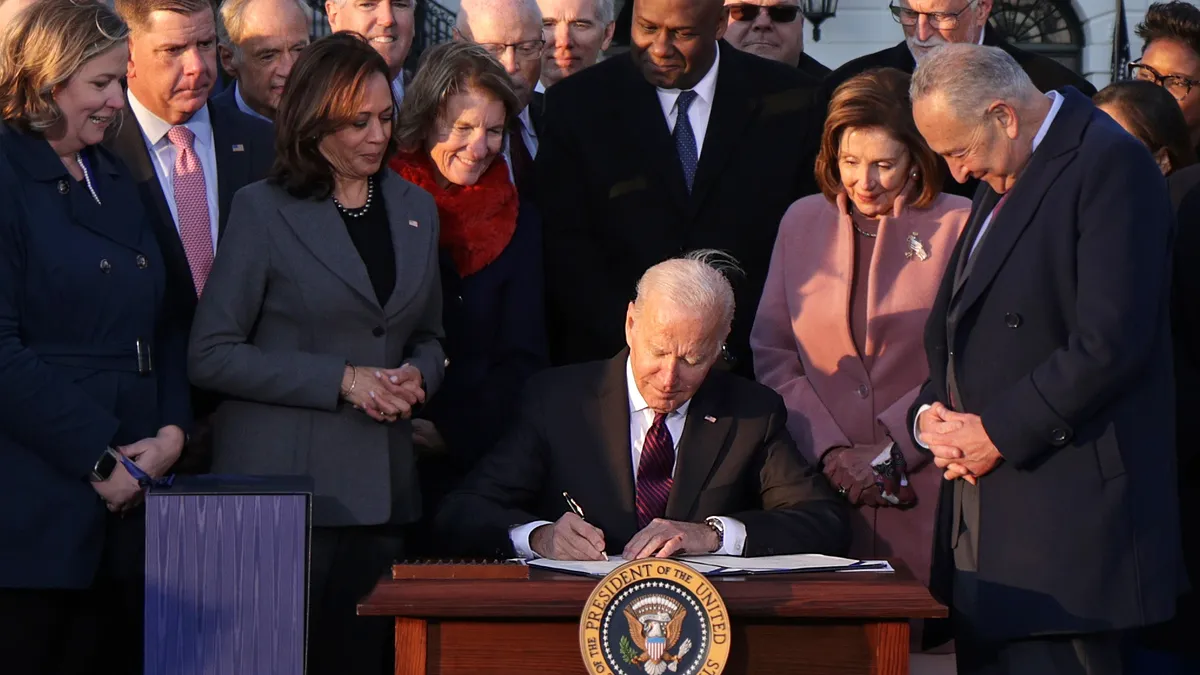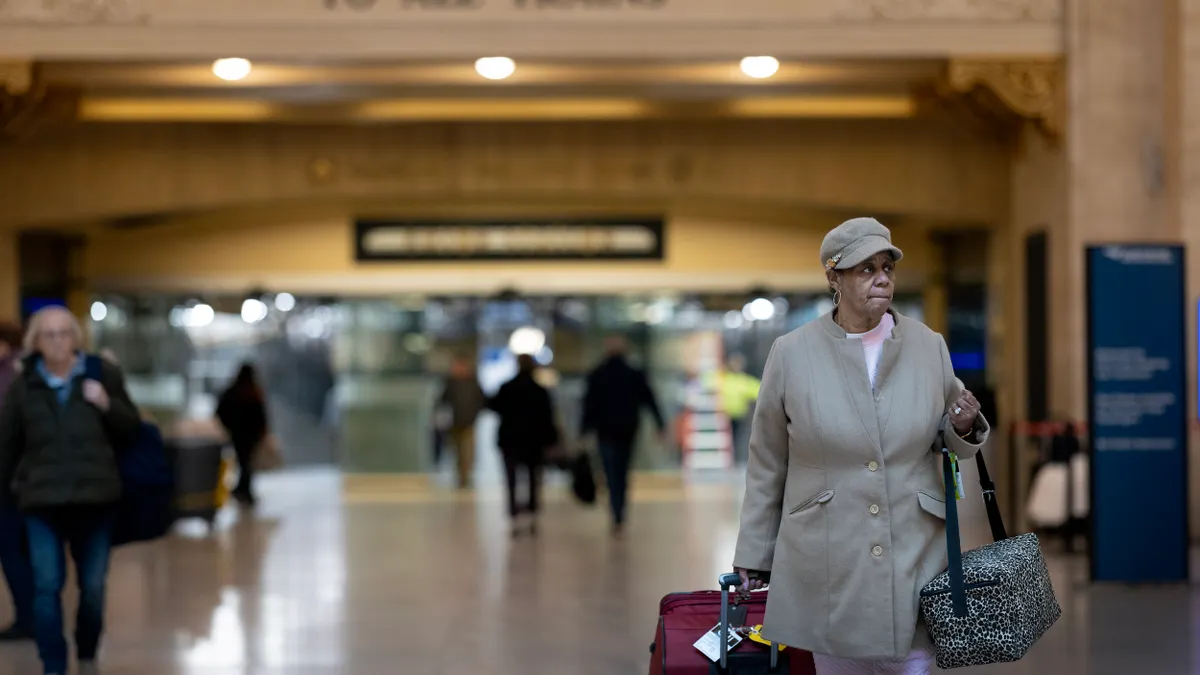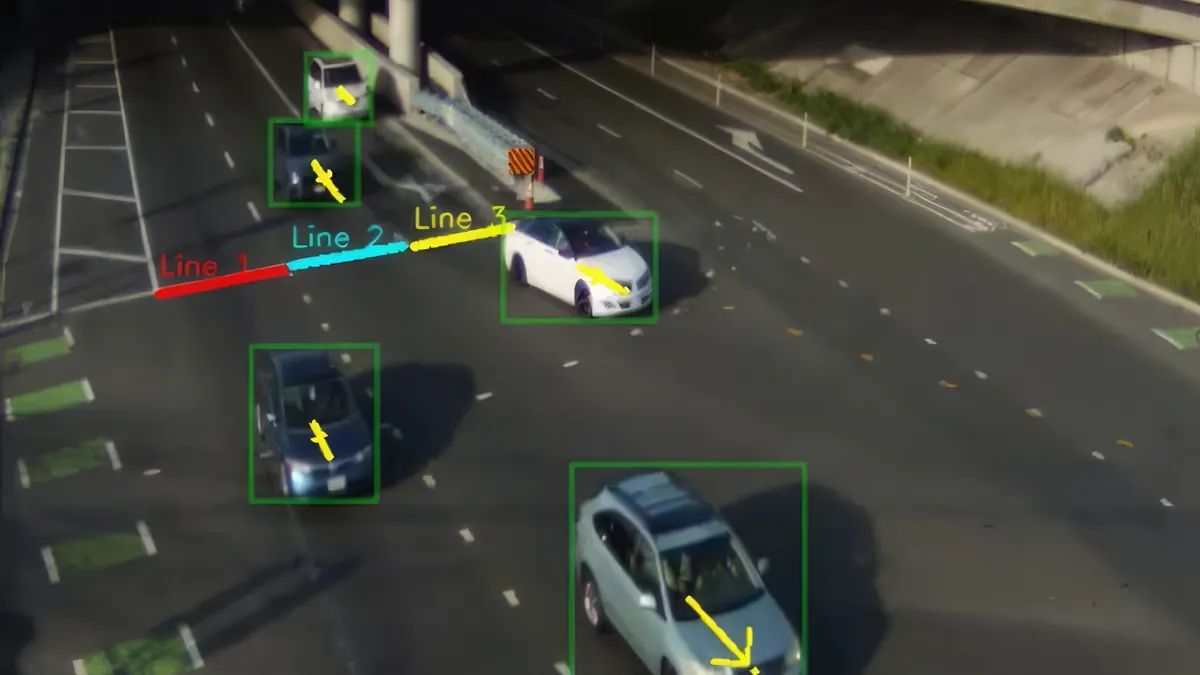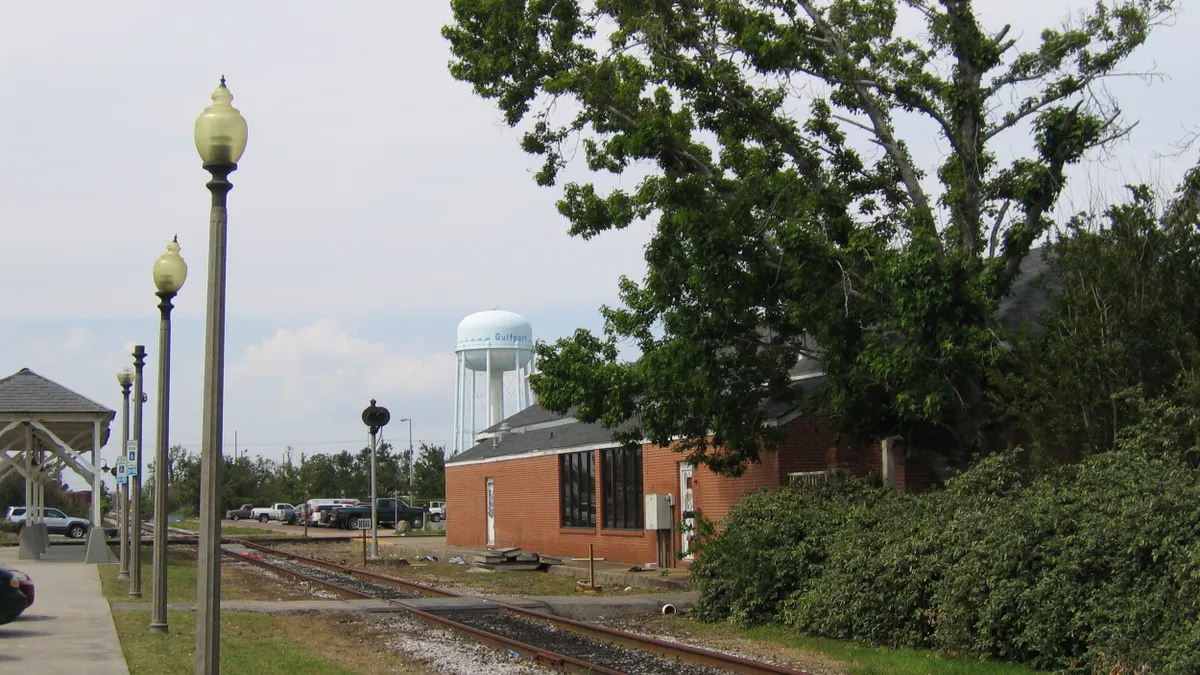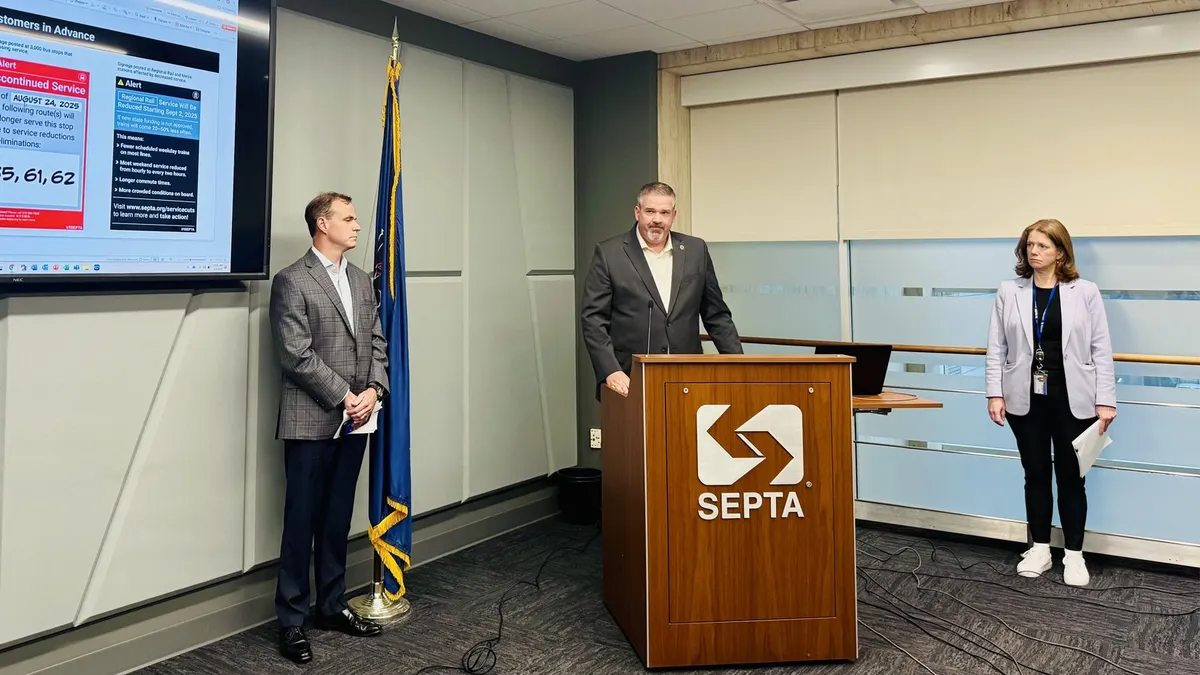After the signing of the $1.2 trillion Infrastructure Investment and Jobs Act (IIJA), the U.S. Department of Transportation opened the spigot of federal funds flowing to cities, counties and states along with tribal and territorial governments. While many welcomed the support, some expressed concerns that the money may be used to perpetuate practices that fail to address climate, safety and equity issues, and it won't help large transit agencies struggling with reduced revenues.
New Orleans Mayor LaToya Cantrell stood with other mayors as President Joe Biden signed the landmark legislation on the South Lawn of the White House Nov. 15. The New Orleans Regional Transportation Authority will receive $18.5 million for a new fare system, a new transit hub and improvements to an existing transfer center. "Our future just got brighter in New Orleans with this investment,” said Mayor Cantrell in a statement.
That money is part of nearly $1 billion in grants being awarded through the Rebuilding American Infrastructure with Sustainability and Equity (RAISE) discretionary grants program included in the infrastructure act. A total of $7.5 billion over five years is available under this program.
Groups praising the infrastructure bill's passage included the U.S. Conference of Mayors, the National Association of Counties and the National Association of City Transportation Officials (NACTO). "There is a lot of promise in the bill to do a lot of good," said Sindhu Bharadwaj, NACTO's program manager of policy. "Infusing an additional $1.2 trillion into our nation's infrastructure can be extremely impactful."
DOT has already awarded RAISE grants to 90 capital and planning projects in 47 states, the District of Columbia and Guam. Atlanta gets $900,000 toward "capping" sections of Interstates 75/85 to reconnect two communities to the city's downtown. Charlotte, North Carolina, will receive $15 million to build a new multimodal transit center. Rockford, Illinois, will get $16.4 million to rebuild downtown streets with a bicycle path, ADA-compliant sidewalks and streetscaping, along with a new bus circulator using three new electric buses.
For the RAISE grants, which were previously known as BUILD grants, "We were really pleased to see the balance of that funding shift back towards transit and multimodal projects," Bharadwaj said.
But not all the money in the IIJA will be going to such projects. The infrastructure package authorizes $273.15 billion over five years for highways, roads and bridges.
"We’ve already seen evidence from states like Illinois and Nevada that states are chomping at the bit to use new infrastructure funds to expand highways," said Yonah Freemark in an email. Freemark is a senior research associate at the Urban Institute.
Illinois, a state with full Democratic control & that committed to advance the emissions-reduction goals of the Paris climate agreement https://t.co/WcsjRkWm5O, has a DOT that wants to use federal funds to:
— Yonah Freemark (@yfreemark) November 22, 2021
-Widen I-290
-Widen I-55
-Widen I-57
-Widen I-270https://t.co/oAFAKYxVYq
Historically, the majority of transportation formula funding that flows from the federal government to the states is spent on expanding and building new roads, Bharadwaj said. "And this bill doesn't change that dynamic," she added. "There are really no restrictions or new requirements placed on states in terms of how they spend the formula funding."
Bharadwaj warned that "a lot of the outcomes we receive will depend on the decisions made around where the money goes." While states choose which projects they want to pursue, the U.S. DOT can influence those choices, she said. One way it could accomplish that, she said, is by improving the transparency around where the funding goes and by tracking how states spend their money.
By doing so, Bharadwaj said, the DOT could coax more funds toward equitable, climate-friendly and climate-resilient programs. That would align with the goals of the administration that were outlined in Biden's Nov. 15 executive order on implementing the IIJA.
"My one recommendation," said Freemark, "is that the secretary of transportation use his discretionary grant programs to only fund projects that reduce carbon emissions and increase social and racial equity. Highway expansion projects are unlikely to meet those goals."
The IIJA provides $39 billion for public transit, but even with that unprecedented infusion of federal funds, some transit agencies — still suffering from sharply reduced ridership and fare revenues — are approaching financial shortfalls.
At a Nov. 17 board meeting of New York's Metropolitan Transportation Authority, the agency's chief financial officer, Bob Foran, said that by 2025 the MTA would come up $1.4 billion short even with federal pandemic relief funds and projected fare hikes of 4% annually beginning in 2022. The Massachusetts Taxpayers Foundation released an analysis of the Massachusetts Bay Transportation Authority's (MBTA) finances in September and concluded that "the MBTA’s operating budget is hundreds of millions of dollars in the red, requiring substantial fare increases or service cuts almost immediately to address the shortfall."
Notably absent from the IIJA are federal funds to support operations and maintenance expenses for transit systems, which would help cover those deficits. "From the onset with the infrastructure bill, there has been an awareness that the funding in the bill doesn't necessarily meet the full scale of every need for transit or infrastructure across the country," said Bharadwaj.
The $1.75 trillion Build Back Better Act, which passed the House Nov. 19, does include $10 billion that could go to support transit operational costs. Under the affordable housing access program, these competitive grants would be available to transit agencies and other entities to add new transit routes, expand existing services, increase service frequency, and offer fare-free or reduced-fare service. Funds can also be applied to state-of-good-repair projects, projects to improve accessibility, route planning, and research and workforce activities.
"NACTO is very enthusiastic about the proposals that are in that bill," said Bharadwaj. "That funding can really complement the funding in the infrastructure bill and would absolutely be a huge boost to cities if the bill could pass."



